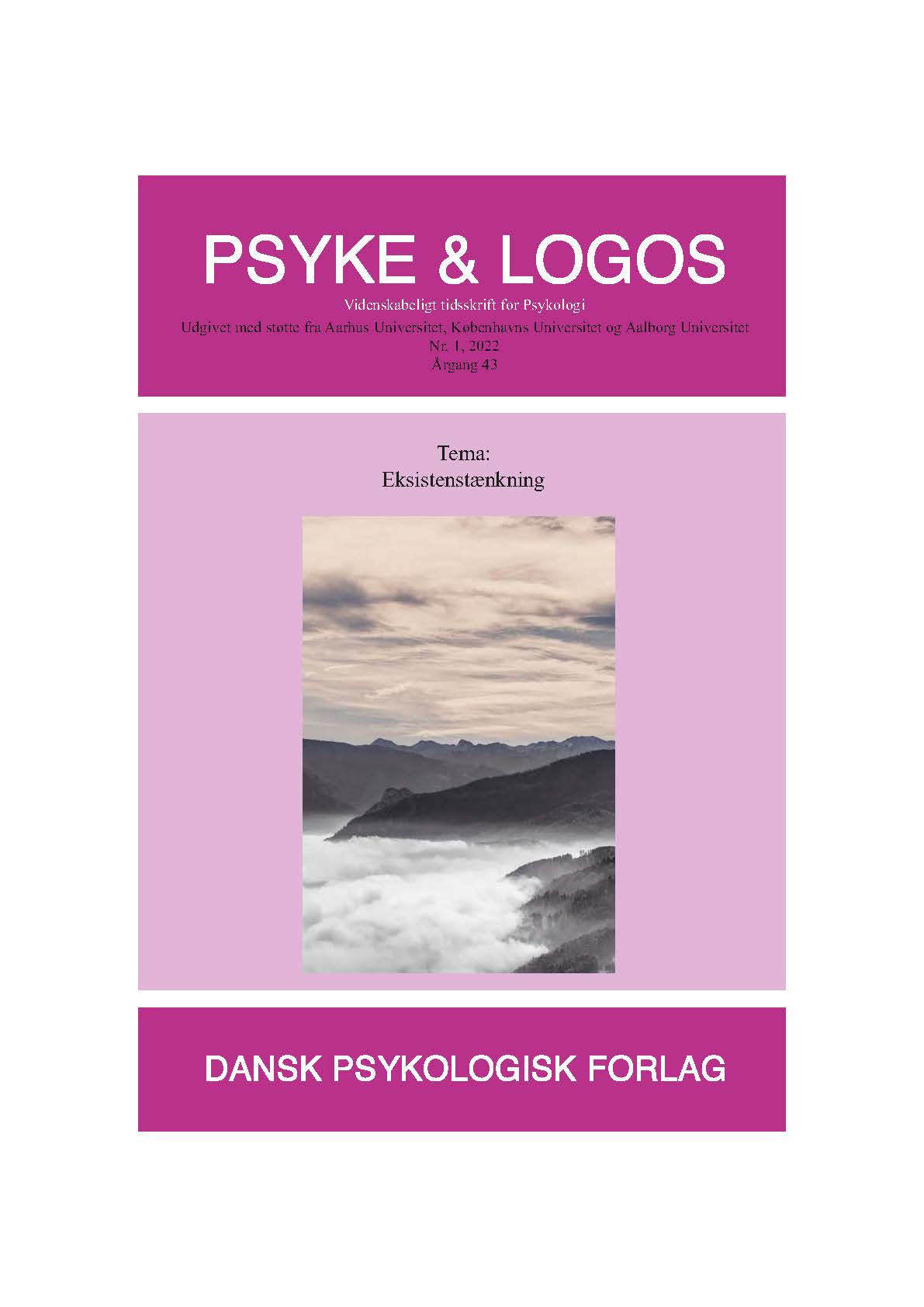Vita Activa, Hannah Arendt and existential psychology
DOI:
https://doi.org/10.7146/pl.v43i1.133889Keywords:
existential psychology, Hannah Arendt, existential philosophy, psychotherapy, organizational psychologyAbstract
Existential psychology is often based on the works of philosophers who
regard the human being as a lonely individual who, in their search for
meaning, faces a free choice, and emphasis is placed on abstract, unchanging
existential basic conditions. There is a need to incorporate an
understanding of the human being as fundamentally more relational and
grounded in communities and which emphasises the concrete, lived life
and the societal conditions structuring it. The philosopher Hannah Arendt
has investigated our practical life together, vita activa, which consists
of labour, work, and action. She describes the changes that modern
human life has undergone in working life, in patterns of consumption,
and our interactions with each other and has particularly highlighted the
alienation they have brought about. We have become alienated from our subjective, biological needs because the activities that are supposed to fulfil them are no longer connected to them. Instead, we work until we
become exhausted. Work has been reduced to an unnatural form of repetitive,
high-paced labour, just as interpersonal action has been replaced by
labour and consumption. Based on her descriptions of active life, she
also points to other basic conditions as the most important ones, including
worldliness, plurality, and natality, and this becomes crucial for understanding
human beings and for the practice on which existential psychology
can be based. Her concepts and descriptions can be interpreted
into a contemporary and psychological context and applied advantageously
in existential psychological interventions within psychotherapy,
coaching and work and organisational psychology. Arendt can thus make
a significant contribution to existential psychology.
Downloads
Published
How to Cite
Issue
Section
License
Ophavsret er tidsskriftets og forfatternes. Det er gældende praksis, at artikler publiceret i Psyke & Logos, som efterfølgende oversættes til andet sprog, af forfatteren frit kan publiceres i internationale tidsskrifter, dog således at det ved reference fremgår, at den oversatte artikel har et forlæg i en dansksproget version i Psyke & Logos. Artikler kan frit deles og linkes til på forsknings- og undervisningsnetværk (så som Blackboard). Link foretrækkes, fordi det giver oplysning om brug af tidsskriftets artikler.




